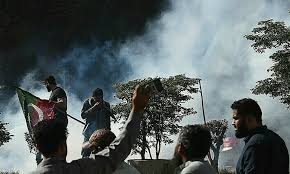RAWALPINDI: The Inter-Services Public Relations (ISPR) announced on Thursday that 19 convicts had their sentences pardoned after filing mercy petitions. A total of 67 individuals submitted appeals for clemency. Out of these, 48 petitions were referred to the Courts of Appeal, while 19 appeals were approved purely on humanitarian grounds and within the framework of the law, the military’s media wing revealed.
The ISPR further stated that the remaining appeals would be decided following legal procedures. The 19 individuals whose appeals were accepted would be released once the procedural formalities were complete.
In April 2024, 20 convicts were also pardoned on humanitarian grounds. The ISPR emphasized that these decisions highlight the “strength of due process and fairness.” This process ensures justice while considering compassion and mercy. Mercy petitions are submitted to the Chief of Army Staff for review.
The pardoned individuals, all sentenced to two years of rigorous imprisonment, were among those convicted on December 21 and December 26, 2024. Military courts had initially sentenced 25 individuals. A few days later, 60 more were convicted.
The second batch included Hassan Khan Niazi, the nephew of Pakistan Tehreek-e-Insaf (PTI) founder Imran Khan. Niazi faces a 10-year sentence for his involvement in the Jinnah House incident.
List of Pardoned Individuals:
- Muhammad Ayaz s/o Sahibzada Khan: Sentenced for involvement in the Main Gate FC Cantt Peshawar incident.
- Sami Ullah s/o Meer Dad Khan: Sentenced for the Bannu Cantt incident.
- Laeeq Ahmed s/o Manzoor Ahmed: Sentenced for the ISI Office Faisalabad incident.
- Amjad Ali s/o Manzoor Ahmed: Sentenced for the ISI Office Faisalabad incident.
- Yasir Nawaz s/o Ameer Nawaz Khan: Sentenced for the Punjab Regimental Centre Mardan incident.
- Said Alam s/o Maaz Ullah Khan: Sentenced for the Punjab Regimental Centre Mardan incident.
- Zahid Khan s/o Muhammad Nabi: Sentenced for the PRC Mardan incident.
- Muhammad Suleman s/o Said Ghani Jan: Sentenced for the HQ Dir Scouts Timergara incident.
- Hamza Sharif s/o Muhammad Azam: Sentenced for the ISI Office Faisalabad incident.
- Muhammad Salman s/o Zahid Nisar: Sentenced for the ISI Office Faisalabad incident.
- Asher Butt s/o Muhammad Arshad Butt: Sentenced for the Rahwali Gate Gujranwala incident.
- Muhammad Waqas s/o Malik Muhammad Khalil: Sentenced for the Rahwali Gate Gujranwala incident.
- Sufyan Idrees s/o Idrees Ahmed: Sentenced for the Rahwali Gate Gujranwala incident.
- Muneeb Ahmed s/o Naveed Ahmed Butt: Sentenced for the Rahwali Gate Gujranwala incident.
- Muhammad Ahmed s/o Muhammad Nazir: Sentenced for the Rahwali Gate Gujranwala incident.
- Muhammad Nawaz s/o Abdul Samad: Sentenced for the Rahwali Gate Gujranwala incident.
- Muhammad Ali s/o Muhammad Boota: Sentenced for the ISI Office Faisalabad incident.
- Muhammad Bilawal s/o Manzoor Hussain: Sentenced for the Jinnah House incident.
- Muhammad Ilyas s/o Muhammad Fazal Haleem: Sentenced for the HQ Dir Scouts Timergara incident.
The May 9 riots began after PTI leader Imran Khan was arrested in 2023 on corruption charges. Protesters attacked public and military installations, including General Headquarters in Rawalpindi and the Lahore Corps Commander House, known as Jinnah House.
Military trials for the rioters were delayed by a Supreme Court order. However, a constitutional bench later allowed pending cases to proceed. Sentences were announced for those involved in the violent incidents.
The PTI has distanced itself from the protests. The party has called for a judicial commission to investigate the May 9 events. It also plans to challenge the military court convictions, calling the trials a “blatant violation of justice.”
The military court verdicts drew criticism from international entities. The European Union (EU) termed the rulings inconsistent with Pakistan’s commitments under the International Covenant on Civil and Political Rights (ICCPR). It also urged the verdicts to be made public. Meanwhile, Washington raised concerns about the lack of judicial independence, transparency, and due process in these trials.


